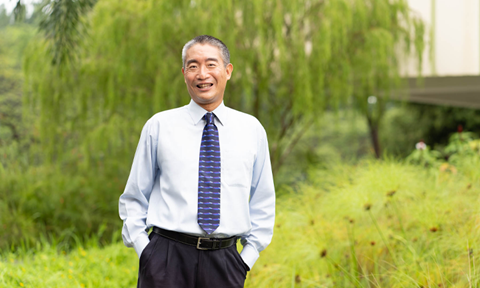Genes for Generosity and Benevolent Brains? About Antisocial Behavior and Prosocial Learning
The Centre for Research in Child Development (CRCD) held the webinar entitled “Genes for Generosity and Benevolent Brains? About Antisocial Behavior and Prosocial Learning” on 2 March 2022. The speaker was Professor Marian Bakermans-Kranenburg from Vrije Universiteit Amsterdam, who is currently Visiting Consultant at the Science of Learning in Education Centre (SoLEC) at the National Institute of Education (NIE). The webinar was well attended by senior staff from the National Institute of Early Childhood Development (NIEC) and the Early Childhood Development Agency (ECDA) as well as senior early childhood specialists.
Prof Bakermans-Kranenburg shared her knowledge about the science of prosocial behaviour in early childhood. Key highlights of her talk included the following: (a) prosociality is a multidimensional construct comprising behaviours such as donating, helping, sharing, and compensating, (b) research findings indicate that infants show a preference for prosocial/empathic behaviour, which suggests that children have the capacity for empathy from a very young age, (c) a discussion of the role of genetics versus the environment in prosocial behavior, (d) evidence indicating an association between brain structures and prosocial behavior, and (e) the role of the child’s immediate context (e.g., seeing an adult modeling donating behavior) in encouraging prosocial behavior.
Following Prof Bakermans-Kranenburg’s talk, Dr. Nirmala Karuppiah, Head of Education at CRCD moderated a Q&A session with the audience. Questions covered a range of topics and raised several important issues. When asked about the association between empathy and prosocial behaviours, Prof Bakermans-Kranenburg explained that empathy, which comprises a cognitive and emotional component, is a necessary trait for the demonstration of prosocial behaviors. She further explained that children are able to show empathy and concern for others including familiar caregivers and unfamiliar strangers, even though they may not share a strong attachment bond with the latter. Another question raised by the audience was about how educators can promote prosocial behaviors in the early childhood classroom. Prof Bakermans-Kranenburg suggested that educators could create conditions that promote prosocial behaviours in the classroom and provide a model to encourage such behaviours. She also highlighted that prosocial models may come in a variety of forms, including characters in television shows and other forms of digital media. In response to the question of the value of providing affirmation, praise and rewards to encourage children to continue exhibiting prosocial behaviours, Prof Bakermans-Kranenburg cited research findings indicating that external rewards may decrease future prosocial behavior and encouraged the use of internal rewards instead.
CRCD Centre Director Prof Tan Oon Seng wrapped up the webinar with a closing address. In his concluding remarks, Prof Tan noted that Prof Bakermans-Kranenburg has given the audience a very insightful science of prosocial behaviour and the importance of environmental influences. He closed with the story of a boy who was born 70 years ago in a town called Leningrad. The boy had two older brothers but they both died in their childhood as result of the 2nd World War attack on Leningrad. The boy’s father was a conscripted soldier and returned from the war severely disabled. His mother was a factor worker whose wages could hardly feed herself. The boy was raised by surrogate parents and unfortunately had a very traumatic childhood. He was constantly bullied and knew no love or attachment. Somehow this boy survived and became a street fighter who later joined the KGB. When the Soviet Union collapsed, the 800,000 KGB agents lost their job. This boy whose name is Putin was a top man of the KGB and he said he would re-build the Soviet Union. This sad story of a boy who knew no love or attachment has today became a dangerous threat for humanity. Cultivating pro-social behaviours are critical in education beginning from the early childhood years. Prof Tan also made reference to the UNESCO report on “Reimagining Our Futures Together: A New Social Contract for Education”. He alluded to the IAE seminar series where he commented on the importance of not being complacent about the importance of education for all and teaching of values and positive social emotional development.

From top left clockwise: Prof Marian Bakermans-Kranenburg, Prof Tan Oon Seng, Dr Nirmala Karuppiah and Dr Ng Ee Lynn.





.tmb-listing.jpg?Culture=en&sfvrsn=8353bb39_1)

.tmb-listing.jpg?Culture=en&sfvrsn=13b00373_1)